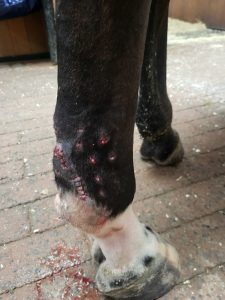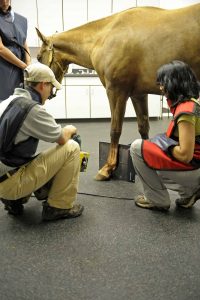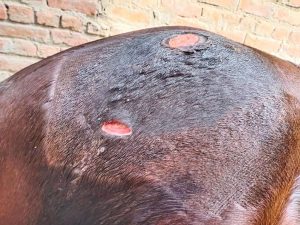
6 Myths About Cooling Horses in Hot Weather
Is it harmful to spray cold water on a hot horse? Should you scrape your horse after hosing him? Two experts weigh in.


Is it harmful to spray cold water on a hot horse? Should you scrape your horse after hosing him? Two experts weigh in.

Researchers highlighted the correlation between the quality of a mare’s colostrum and her foal’s health in the 130 days after birth.

Researchers say this method of extracting horses’ cheek teeth could reduce complications during and after surgery when traditional extraction methods fail.

Researchers have identified several benefits to this method for removing teeth in horses, such as reducing postoperative complications.

Researchers believe this dewormer might still be effective in horses with PPID, formerly known as equine Cushing’s disease, despite their altered immune function.

Researchers found that aged horses with PPID (equine Cushing’s disease) might be at a higher risk of losing bone density, especially in non-weight-bearing bones.

Here’s what veterinarians should consider before injecting a metabolic horse’s joints.

Researchers believe this product could serve as an alternative to conventional antibiotics, helping combat antibiotic resistance.

Cold weather often brings unwanted weight loss in hard-keeping horses. Two experts offer advice on preventing this as we prepare for temperatures to drop.

Researchers discovered a new technique to detect osteoarthritis in horses earlier than is currently possible with radiographs.

Researchers reviewed literature about an anatomical variation of the equine cervical spine called TC67 that occurs most often in Warmbloods.

Back pain in horses can be challenging to overcome, but you can address and prevent it with diligent management and rehabilitation.

This new approach will allow veterinarians to support better wound healing in horses with traumatic wounds.

Scientists say medical-grade honey could be a beneficial secondary treatment option in horses after joint surgery for synovial sepsis, though more research is needed.

New imaging techniques might make examining abnormalities of the fetlock easier for equine veterinarians.

Speeding up wound healing helped reduce the risk of infections and sepsis in rescue horses with skin wounds.
Stay on top of the most recent Horse Health news with